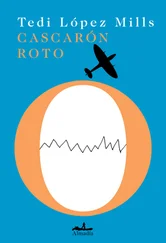Mark Mills - Amagansett
Здесь есть возможность читать онлайн «Mark Mills - Amagansett» весь текст электронной книги совершенно бесплатно (целиком полную версию без сокращений). В некоторых случаях можно слушать аудио, скачать через торрент в формате fb2 и присутствует краткое содержание. Жанр: Старинная литература, на русском языке. Описание произведения, (предисловие) а так же отзывы посетителей доступны на портале библиотеки ЛибКат.
- Название:Amagansett
- Автор:
- Жанр:
- Год:неизвестен
- ISBN:нет данных
- Рейтинг книги:5 / 5. Голосов: 1
-
Избранное:Добавить в избранное
- Отзывы:
-
Ваша оценка:
- 100
- 1
- 2
- 3
- 4
- 5
Amagansett: краткое содержание, описание и аннотация
Предлагаем к чтению аннотацию, описание, краткое содержание или предисловие (зависит от того, что написал сам автор книги «Amagansett»). Если вы не нашли необходимую информацию о книге — напишите в комментариях, мы постараемся отыскать её.
Amagansett — читать онлайн бесплатно полную книгу (весь текст) целиком
Ниже представлен текст книги, разбитый по страницам. Система сохранения места последней прочитанной страницы, позволяет с удобством читать онлайн бесплатно книгу «Amagansett», без необходимости каждый раз заново искать на чём Вы остановились. Поставьте закладку, и сможете в любой момент перейти на страницу, на которой закончили чтение.
Интервал:
Закладка:
She explained that at one time the early settlers had so denuded this rolling landscape that they’d been forced to drive their cattle and sheep into the kettle holes whenever the English ships appeared off the coast looking to re-stock. The East End, she said, was pockmarked with these deep depressions, footprints of the vast blocks of ice left behind by the glacier when it retreated. She insisted on making a detour to show him one such hollow, its steep sides descending to a sun-dappled pool, the water clear yet somehow black as pitch. And he imagined the farmers cowering there with their beasts, safe from the hungry eyes of the enemy, their former countrymen.
She showed him the graves of those early herders, small family burial plots reclaimed by the forest, the bones of the dead woven through with the roots of the same trees that had dislodged and toppled the weathered headstones. The names, eroded by time, had been destined for obscurity until Mary came along and recorded them, clearing off the lichen, taking rubbings with wax crayons, pulling out on to rice paper names no longer discernible to the human eye.
Some were names that hadn’t survived the years, the male lines cut short at some juncture, although some part of their blood still flowed in the veins of the living, trickling down through the generations via the womenfolk, mingling through intermarriage, surviving in everything but name.
Mary wasn’t a Calder; her husband was a Calder—from Scotland via Madison, Wisconsin—and he was new to the East End of Long Island. Or rather he had been until he left. Mary was a Northfleet, a family to be reckoned with in and around East Hampton ever since Samuel Norfleete first showed up on the scene from England. And just as Mary could trace her descent right back to the very earliest days of settlement, so they now retraced the footsteps first taken by her ancestor as he headed through the North Woods in search of an inlet or cove with a deep enough draft to accommodate the seagoing vessels that would transport his lumber, cattle and tanned hides to new and lucrative markets. He found the ideal spot at what was now called Northwest Landing, and he became wealthy on the back of the venture, though you wouldn’t have known it to look at the place almost three centuries on. All that remained of the warehouse and the wharf he had built was a handful of blackened stumps poking through the mud of the silted-up little creek, barely visible through the murky water.
It was while he was peering at these few pathetic remnants of the wharf pilings that Mary said to him, ‘You don’t seem very interested.’
It wasn’t the blisters, not if he was honest. And it wasn’t that he was bored. He had enjoyed listening to her stories of days gone by, even if she did have a tendency to talk with earnest, almost irritating, enthusiasm at times. It wasn’t even that her tales of hardy pioneers hacking out a life for themselves unsettled him—the noble clans of farmers and fishermen with their ancient lineages and deep-rooted traditions, wedded to the land and the ocean. It didn’t bother him that he knew almost nothing of his own heritage, except that he sprang from an undistinguished jumble of different races and religious creeds. There was a German great-something (or was it a great-great-something?) who had worked as a stonecutter in the granite quarries of Vermont, and a Danish wet-nurse, then some whispers of Jewish blood on his mother’s side, topped off with a large shot of Brooklyn Irish and a dash of Jesuit French.
No pure pedigree for him. He was a mongrel, genuine homegrown fare, and there seemed no reason to deny it or be embarrassed by it. For all their lofty claims, people were people. Even here in East Hampton, with their time-honored bloodlines, they would still have their share of bastards and backroom abortions and cuckolded husbands blithely bouncing other men’s children on their knees.
No, if Mary sensed a certain distraction in him it was because it was five o’clock on a Saturday—weekend cocktail hour—and by his calculation they had another hour and a half’s walking ahead of them before they reached their destination.
He was wrong.
Some unseen clock was striking eight as they crossed the bridge spanning the creek in Springs. This was the heart of the little community, though you wouldn’t have known it to look at the place. There was no Main Street as such, just a couple of road junctions, an open expanse of land bisected by a creek, and a few isolated buildings, randomly placed, as if someone had blindfolded a founding father and asked him to stick pins in a map. There was a church here, a schoolhouse over there, a barn, a hall, and a lone store on the south side of the bridge, in front of which a group of local men was now gathered, chewing the fat. Mary greeted a couple of them as they passed by.
Beyond the store, a blind lane led down to the edge of Accabonac Harbor and what appeared to be an abandoned boatyard. Closer inspection revealed a few desultory signs of activity—a small rowboat upturned on wooden stays and half painted, an outboard motor stripped down to its component parts, a torn fishing net in the process of being repaired.
Across the yard, on the shore of the creek, stood a small shack, the water lapping at the base of the veranda. An old man was seated in a spring-rocker examining a small round object between his thumb and forefinger.
‘Joe.’
He turned and his furrowed face cracked a smile. ‘Mary. And with a beau in tow.’
‘Just a friend,’ said Mary, stooping to kiss him on the cheek.
‘If you say so.’ He eased himself to his feet, extending a crooked and calloused paw. ‘Joe Milne.’
‘Tom Hollis.’
‘What’s that?’ asked Mary.
Joe handed her the small ball. ‘You tell me.’
She turned it in her fingers. ‘I don’t know,’ she conceded, handing it on to Hollis. It was hard and textured.
‘Flo Barratt back in the woods there, she’s got her an army of cats, that old heifer, scores of the damn things runnin’ all over, pissin’ on the couch and all sorts. Some of ‘em’s gone missing of late. Now I know why.’ He paused. ‘It’s a fur ball out of that greathorned owl I keep for huntin’ crows.’
To have dropped it then and there would have been impolite. Thankfully, Joe took it off him.
‘Must have developed hisself a taste for kitty meat. Best dispose of the evidence while I figures what to do.’ He lobbed the fur ball out into the creek.
Hollis noted that it floated.
Joe suddenly clamped a hand on his shoulder. ‘There’s a clam pie needs eatin’ and some cold beers to wash it down with.’
‘Thank you, God,’ thought Hollis.
They went and dunked themselves in the creek before dinner to wash away the sweat and the grime, stepping gingerly through the rushes, the mud oozing between their toes. Hollis was forced to confess to Mary that he couldn’t really swim. He knew that at a push he could flail his way to the side of a swimming pool, because he’d been forced to do so once on a day-trip to Coney Island when his father had tossed him into the deep end of the marble pool in the Pavilion of Fun. But the atavistic impulse to survive which had driven him through the water that day had little in common with the pleasure others appeared to get from swimming.
He stood near the bank up to his chest in water while Mary stroked around leisurely in the dying rays of the sun, glancing over every so often to check that he hadn’t lost his footing and slipped beneath the surface. He was warmed by her concern, and surprised by the force of the urge that welled up inside him when she stepped from the water.
She slapped his hand away and told him to behave.
They ate dinner inside by the light of a kerosene lamp hanging from a beam. The clam pie was hot and the beer, as promised, cold—manna and nectar after a day’s hiking.
Читать дальшеИнтервал:
Закладка:
Похожие книги на «Amagansett»
Представляем Вашему вниманию похожие книги на «Amagansett» списком для выбора. Мы отобрали схожую по названию и смыслу литературу в надежде предоставить читателям больше вариантов отыскать новые, интересные, ещё непрочитанные произведения.
Обсуждение, отзывы о книге «Amagansett» и просто собственные мнения читателей. Оставьте ваши комментарии, напишите, что Вы думаете о произведении, его смысле или главных героях. Укажите что конкретно понравилось, а что нет, и почему Вы так считаете.











